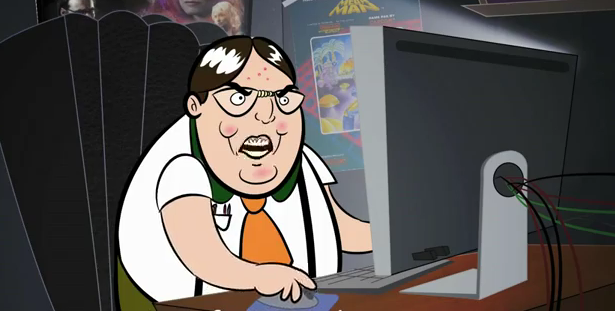
Hey guys, it’s Adam from TheDiceAbide and RUMBL.
In my non-gaming life, I’m a User Experience (UX) Designer. For those who don’t know what that it, it means I analyze and design how people experience products, typically software and hardware, but UX Designers are employed in all kinds of industries (think about how every element of Disneyland was laid out with a purpose). This background makes me look at things a bit differently from time to time, I spend hours pondering weird details or products and places that most people wouldn’t bother with, and when I see something occur over and over again, I try and see if there is something bigger at work.
Lately, I’ve been introduced to the concept of “tilting” by my local Guild Ball players. For those who don’t know, Tilting is a term, popular among Warmachine players, to describe losing your shit and getting angry while playing a miniatures game. In the 20 years of experience I have playing with miniature murder dolls, I’ve never heard this expression until recently, and only hear of it in the context of a game of Warmachine, and occasionally Guild Ball (which draws in a lot of the WMH community).
After explaining the concept to my wife (who is also a designer) we decided to get to the bottom of why it seems to be something so common in one game that it has a term, and yet in other games, like Infinity or 40k, it doesn’t seem to be that much of an issue. She doesn’t have experience with miniature games, so it took some explaining of the core mechanics of each, and a few intoxicated nights of plotting out different theories to come up with one that seemed to fit the bill.
NOTE: Before you read on, remember that this is all just theory, and I’m not advocating that one game may be intrinsically better or worse than any other, rather, it’s just me trying to make sense of it all.
User Agency
User Agency is a term used in UX design to describe the ability for a user to control their experience. Often times this can mean that a user is able to customize their experience, or choose how they solve a problem within a bit of software. When people are forced to conform, and perform tasks within software in a specific way, they could feel helpless, or powerless to control their own experience. When a user has more agency, they are free to pick and choose how to do something, and react to their experience in a way that they are most comfortable with… Something else to think about is perceived agency and actual agency. With perceived agency, a player feels that they had a direct impact on the result (think about taking armor saves in 40k), while with actual agency, players are making active decisions to affect an outcome (like charge reactions in WHFB).
So how does User Agency relate to miniature games?
I Go, You Go: Low User Agency
Traditional miniature wargames are designed with the concept of players each having a turn. Quite often, like in Warhammer and Warmachine, one player will be able to activate their entire army, perform all the tasks they want to do, and then it become their opponents turn to do the same. In these games, during your opponents turn, there is typically very little for you to do, and it is somewhat common to feel like there is nothing you could have done when your opponent is kicking your butt. In Warmachine in particular, it is not uncommon to do nothing except check off boxes of damage. Since all the dice rolled are done by the attacker, when it is not your turn, you are at the mercy of your opponent, watching helplessly as your army gets crushed, hoping you have enough left to recuperate from the attack. This kind of game play can create a very competitive, it’s you VS me environment, instead of a situation where the game feels like a collaborative effort.
Warhammer 40k (and old WHFB), is slightly different, since even during your opponents turn, you still have the occasional decision to make, and dice to roll, all of which can influence the outcome of the game. Statistically speaking, it makes no difference who is rolling the dice, but when YOU roll the dice, you feel like you influenced the outcome. Imagine playing 40k, but your armor saves were rolled on by the opponent. If your opponent were getting some hot rolls, your blame would often be rested on the opponent or their cheating dice, while currently in 40k, if you roll badly, it was your own (or your dice) fault for failing to roll the way you *should* have. Because of this, Warhammer 40k (and similar games) tend to feel a bit more like you are in control of the outcome, despite it being statistically irrelevant. Presumably, this is why 40k players can still often get quite frustrated, but it doesn’t seem to happen often enough in the culture to be given a unique title.
Mixed Activation: Moderate User Agency

Some newer games are experimenting with the way that Activation traditionally works. The two that come to my head first, are the ones I have experience with, Guild Ball and Beyond the Gates of Antares (though Bolt Action works in the same way). In these games, your turn isn’t dominated by waiting for your opponent to perform every little trick they can think of, but instead, you are alternating between players during a game turn.
Guild Ball still has some I go, You go feel to it, since the mechanics are very similar to Warmachine, but since you are only getting to activate a single model at a time, a player doesn’t have to sit idle for very long, and has the opportunity to respond to an enemy plan that may be coming to fruition. From what I’ve seen of the game, and it’s players, I would suspect that Tilting wouldn’t be a term used in the community, if it wasn’t for the impact on the game by it’s WMH playerbase. Not saying people don’t get frustrated, it just doesn’t seem to happen as often, or escalate as much.
Beyond the Gates of Antares and Bolt Action have a unique system to break down I go, You go, in that each player places a dice in a bag for each unit in their army. These dice are then randomly drawn to see who gets the next activation. This part of the game helps break down the expectation of going next, but if you really need it, you can feel let down, and experience a bit of frustration. At the same time though, it’s very rare that your opponent will get their full turn before you get a chance to attack, though not impossible. Additionally, during your opponents turn, you have the opportunity to react to an enemy order, and you get to make armour saves to damage you take. The combination of the two of these, gives the user the ability, both actual and perceived, to affect the outcome of the game, during the opponents turn. This is a tremendous increase in user agency over a purely I go, You go, and seems to create a less frustrated user base.
Blended Activation: High User Agency
The only example of this that I am aware of first hand is Infinity. In this game, everything your opponent does, you get an opportunity to react to, and often times this means both players are rolling dice against each other to determine the outcome. There are very few situations where a player is left with no recourse, and typically those situations are the result of a well executed maneuver by the other player. Since you can typically respond to almost everything your opponent does, throughout the entire game, you are making decisions which directly affect the outcome of the situation, and the survival of your units. When you make a decision that directly opposes your opponents attempts, you both roll dice, whoever wins the roll off gets their way. If the enemy shoots you, you shoot them back (though you are not typically as effective when responding).
This kind of game play, also means it’s very important what someone’s intention with an action was. Since there is a concept of “public information” in Infinity, you should never be surprised with a model’s Line of Sight, and if it’s unclear, people most often revert to what the obvious intention was. An example would be if a model moves out around the corner enough to see an enemy, before ducking back out of line of sight, both players then roll their dice and continue. If during the next turn the opponent discovers that actually the model was still a sliver in LOS after ducking back, most often people will say that there is no LOS, or nudge the model back far enough to get out of sight, as that was the intention at the time. This kind of communication, as well as turn structure, where you are always making decisions, creates the environment that has a lot of user agency.
So what does all that mean? Pretty simply, when people have the most control of their outcome (perceived or real), they feel less frustrated by the results. Never have I seen a game of Infinity devolve into shouting, with tempers flaring, even in the most competitive tournaments, and my theory is that it is because the increased user agency, with the collaborative game play. I’m not trying to say that one game system is better than another (though I do have my preferences), but instead I’m hoping that by people understanding the nature of their experience in how a game is designed, that they can understand their own, or their opponents behavior, and possibly even change it, if needed.
What do you think? Do you have other theories?
Shameless Plug Time!
If you guys haven’t heard already, I’m the cofounder of a new app called RUMBL. I’ve put my talents to work with a few other fellow gamers to create an online resource to find other players, arrange games, and record the results. This however is just the beginning and we will continue to expand RUMBL until it’s the go-to resource for people who ACTUALLY play games. With awesome tools like store finders, club registration and event tracking, coming in the future, you’ll always have your finger on the pulse of your local gaming community.
We have recently launched our beta and are looking to gather as much user feedback as possible, so please check it out and play some games!

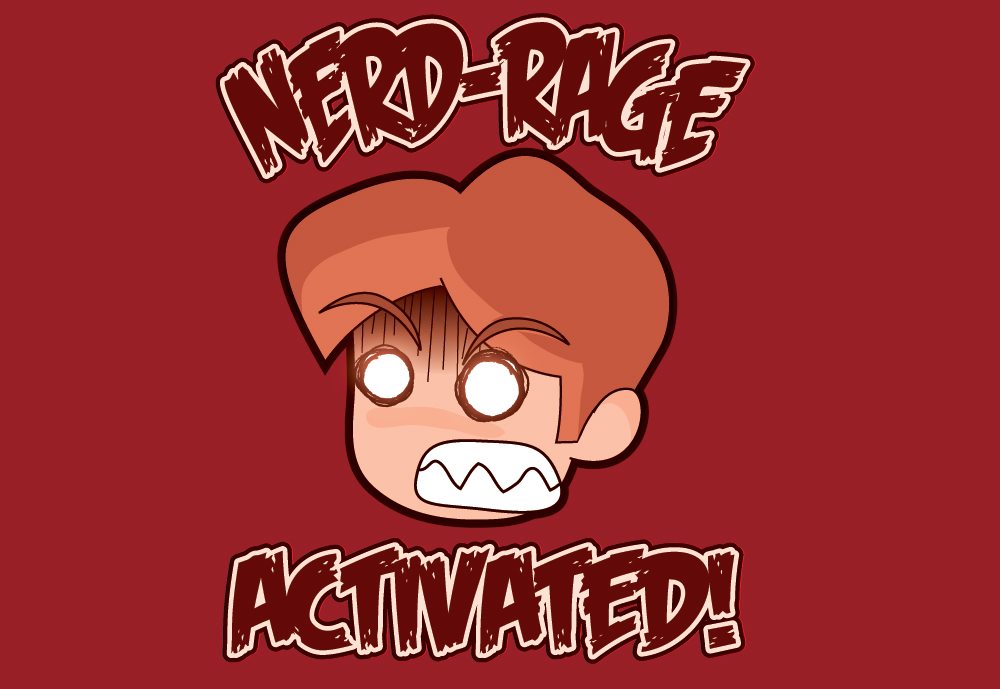
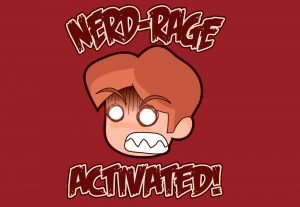

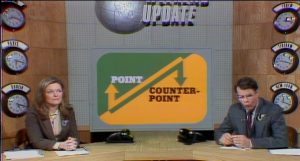
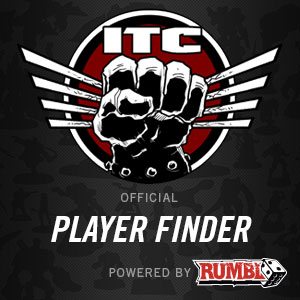

This article is very interesting to read and think about. I’ve been a 40K player for 25+ years now and have very little experience playing other miniature games. I have seen ’tilting’ in various degrees over the years, and, by the way, I really like the term ’tilting’. Your theory is interesting and not something I’ve ever seen articulated in such a way.
I’ve observed the tilting in all kinds of forms ranging from ‘throwing models’ all the way to the passive aggressive snarkiness during games.
-Time investment. In a hobby where a lot of time investment is typically required in order to simply play a game is a significant factor. In a game like 40K, where there can be some very lopsided matchups, folks can be very upset as they see all the time taken in order to just put models on the table get unceremoniously removed from the table. It ties in with your theory about player outcome control. To me, the frustration sets in because they have no control over the outcome of their models/game and it gets wrapped up into all the time they feel was wasted.
-Emotional (Fluff?). Folks who read a lot of the background 40K provides rarely translates into the actual game. These players have a notion on how the game should play out according to stories while using their armies. These players can be quite passionate about one of their favorite hobbies and when it does not play out in the manner they’ve read about, they become ’tilted’. Again, this can also fall right into the level of control over the outcome of their models as you’ve described.
-In tournaments, the only real times I’ve observed folks tilt is when there is a conflicting rule interpretation. GW is infamous for them and if the TO did not address and make a specific ruling, it always seems bound some player will try to exploit the specific rule. TOs for larger events have worked hard to address these, but every now and then, one of these occasions will crop up. This is where I’d probably have the ’tilting’ experience as I’ve always followed the notion of using the least advantageous interpretation of an unclear rule and my opponent insisting of using the most advantageous interpretation (in his favor). TOs have made great strides and, thankfully, this has become very rare occurrence these days.
Thanks for the article. It provided me with some more concepts to think about which helps me ensure I and my opponent can avoid the ’tilting’ experience.
Good points there. 40k especialy can have a realy low effort vs reward ratio but then again that goes back to the original point of the article. The more agency each player has the less of an issue this is.
If you then add clear rules you basicaly took out most issues. Which, as it says is basicaly why it doesn’t happen in Infinity past the point then players have the experience to know all their rules.
A very interesting read, I highly enjoyed it! It was especially thought provoking because I entered table top war gaming when my father-in-law introduced me to BattleTech. One of the most difficult adjustments for me coming from BattleTech to Warhammer 40k (other than going from 2-4 sub $15 models to 15+ $35 and up kits) was the way the turn structure worked.
In BattleTech you dice off each turn for initiative, winner moves last (allowing you to react to enemy movement) and shoots first (though destroyed models still get to attack before being removed. In the “movement phase” the player 1 moves a unit then player 2 moves a unit until all movement is done. Then you go to the “shooting phase” and repeat except player 2 goes first. This really have a sense of being able to react to enemy maneuvers and since destroyed units still got to shoot (because everything is supposed to be happening simultaneously) there was significantly more of both actual and felt agency.
With rumours of a streamlined 40k I’d love to see them implement a turn system like BattleTech. Allowing more agency for the players and fights to happen more dynamically. Keep the same “phase structure” 40k has now, but using the “I move, you move,” “I cast, you cast,” “I shoot, you shoot,” and “I charge, you charge” you’re system.
While I’m wish listing for “8th ed” there was an idea I saw on the comments at BoLS: one TN (target number) many dice. The idea basically being, everyone hits on a 4+ but different units roll different kinds of dice. A guardsmen would roll a d6 while a Space Marine would roll a d8. Hits and wounds would be consolidated into a single roll and modifiers, similar to the current Strength v Toughness ones, would be used to adjust the TN to an appropriate number.
Gotta say I do like the alternating phases within a turn idea. All assaults would have to be resolved after “I charge, you charge” I think.
Yeah I figure you’d do charges and then you’d resolve combats the way we do now “uh lets do this one first.”
What about all the rules that specify “turn” vs “game turn?” Those don’t work if there are no distinct player turns. Also, while alternating movements is really nice in smaller games (they’re great in the BaC game), I’m not exactly keen to make 40k take even longer. The more interaction you have between players, the longer the game is going to take. When each player has to move 10+ units *and* they have to react to the other player moving their units…. games would get so bogged down.
Not a fan of the “everything hits on the same amount but gets a different die” rule either. Do I need to have 5 sets of dice to roll off all my different units if I have some guardsmen-type units in my army as well as marine-type and so on?
Well if you’re re-writing the rules you can adjust the Turn vs Game Turn rules to work. I mean you still have Game Turns, and most Player Turn stuff could probably folded into Game Turns if you’re doing alternating movement and shooting.
I don’t think it would really take that much longer, you’re having to think and react anyway when you move on your turn. I think it’d go faster because you’re both thinking of the movement phase, and you can move/counter-move and keep going at a fast pace. I’d like to see it tried at least.
Well one of the main slow downs in 40k how much dice rolling you’re doing. Roll to hit, re-roll to hit, roll to wound, re-roll to wound, roll saves, re-roll saves, roll FnP and then finally remove models. The idea behind the original poster (which I copied) is that if you branch out and use more dice you can combine to hit and to wound into a single roll.
I’d also be ok with moving to D10 and using modifiers to determine the target number. At least if the goal is to streamline 40k without turning it into Sigmar.
You’ve really never heard the term tilting used in 40K? That’s interesting. I think I’ve heard it used in every competitive setting I’ve had any interest in, be it miniature games, sports or computer games. I believe the term is actually derived from Pinball originally, where if you loose your shit and bash the game the machine will enter the “tilt” state and go bananas. I also saw the term widely used in Poker, and I believe that’s responsible for the current widespread usage actually.
I’ve heard it many times in relation to videogames (particularly competitive online games) or poker, but I haven’t ever really heard it used very often in relation to 40k. It certainly can happen, but the amount of time that a 40k game takes helps mitigate tilt. By the time it’s your turn it could be a full half hour since that squad rolled a bunch of 1s and died. It’s a lot harder, but not impossible, for things to go wrong over and over in a quick enough succession to tilt someone.
Time certainly helps most people keep their cool, but you still get those moments when an entire army tries to kill the unkillable unit instead of playing tactically smart etc… 🙂
Nope, not once! Which I think is funny now, since I’ve been playing for 20 years and not once heard “tilting” used anywhere outside of pinball.
I’ve always heard the term “rage quit” used in 40k
Tilting or going on Tilt is a pretty common poker term, that’s where i first heard it when a few people I know went through a “professional” poker phase. I thought everyone had heard it..
Wow that is fascinating! I haven’t heard the term tilting in 40k before, we are usually more colorful in our descriptions with terms like “butt hurt” and “salty”
However the premies of the article is really interesting. I think they are right that saving throws help diffuse those feeling a bit. For example you can’t be mad at your opponent if you roll shit for saves. And the games that really cause nerd rage are the ones where we take away our opponents ability to roll dice. EG “My ignores cover centurion star shoots at your squad go ahead and pull 10 models. No you don’t get a save and no my mother is not a whore why do you ask?”
Good read!
Tilting is a pretty common term, used all the time in the video gaming community. It refers to losing your focus and starting a losing streak of games when playing online. Pro players are affected by this on stage as well.
You play badly > you lose > you lose focus > you play badly > you lose again.
It It’s hard to get out of that death spiral once you start. But if you are aware of it, you can take steps to recover.
Just wanted to say, it’s not exclusive to wargaming, it’s a common expression in other communities.
As others have said tilting has been associated with poker and that is where I heard it. However I would like to contribute some thoughts on competitive play and tilting. In poker it is ok to get your opponent on tilt and some players will table talk and needle a player or simply show a bluff in an important hand expecting the bluffed player to lose control of their emotions and make further mistakes. How does this relate to gaming? :
Well back in my magic playing heyday we would call it “gamesmanship”. The point of gamesmanship was to to get your opponent to make mistakes as they would stop thinking about the game at hand and instead lose control of their emotions. Magic like poker involves making many decisions with incomplete information. Players would try to get people to not think “clearly” do to loss of emotional control. I myself did not play this way but I ran into many players who would try this. I remember during one qualifier match a guy sat down across from me and said: “Ready to lose?”…Not hello or anything remotely polite. He also trash talked a bit but quieted down as I ignored him and won the match. I like what the article discusses but the idea that some players may try on purpose to tilt people cannot be ignored. Fortunately in many miniature tourneys sportsmanship scores head this off most of the time. My 2 cents
-DVO
‘Tilting’ is a term from poker. at least 10 years old. It refers to going on ’tilt’ aka loosing your cool which usually results in loosing money. Similar to rage quit as except you rage stay. Something you try and get your opponent to do